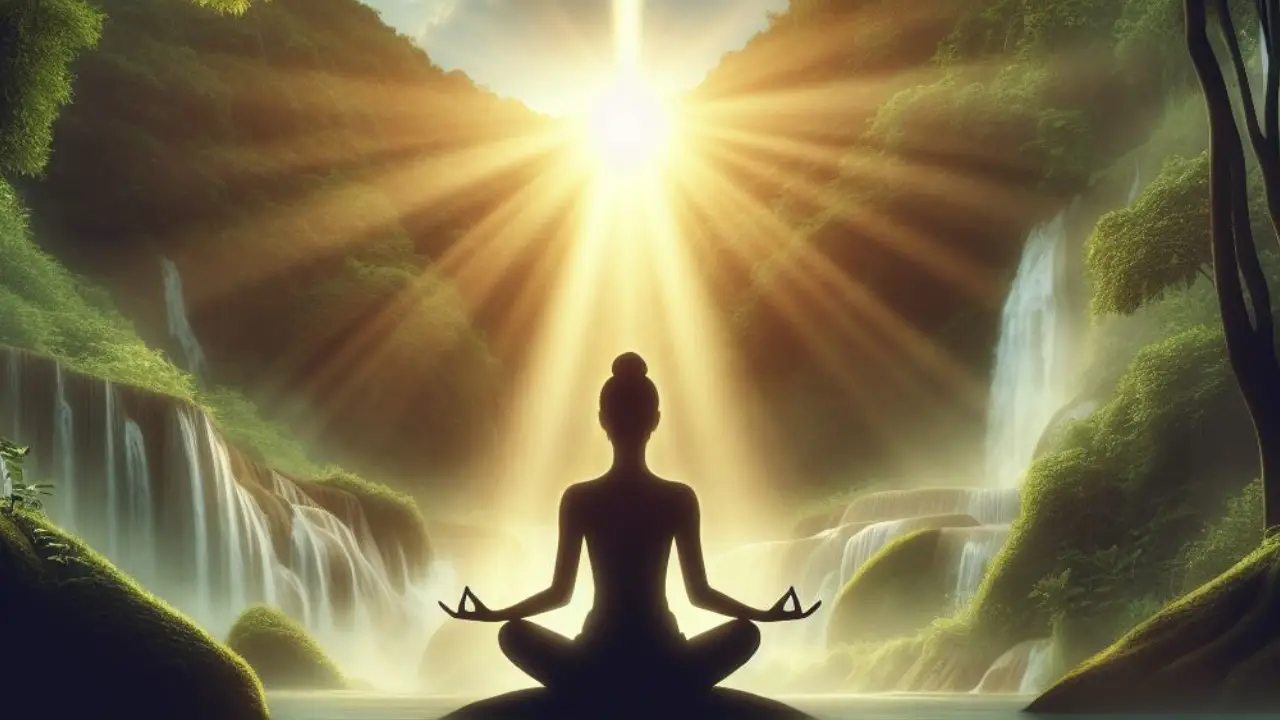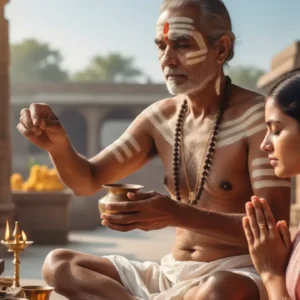Meditation in Hinduism has evolved over millennia, with different schools of thought offering unique perspectives and techniques. From the rigorous discipline of Raja Yoga to the devotional fervor of Bhakti Yoga, each path offers a distinct approach to connecting with the divine. By exploring the rich tapestry of Hindu meditation practices, seekers can find the method that resonates most deeply with their spiritual aspirations.
The Science of Meditation: Bridging the Spiritual and the Scientific
In recent years, scientific research has begun to uncover the profound effects of meditation on the brain and body. Studies have shown that regular meditation practice can reduce stress, improve cognitive function, and enhance overall well-being. By integrating ancient wisdom with modern science, we gain a deeper understanding of the transformative power of meditation in fostering holistic health and spiritual growth.
Understanding Meditation in Hinduism
Meditation in Hinduism isn’t confined to sitting in silence; it encompasses a diverse range of techniques, from breath control (pranayama) to focused contemplation (dhyana). Each method serves as a conduit to quiet the mind and awaken the soul. Whether through chanting mantras, visualizing deities, or practicing mindfulness, the goal remains the same: to transcend the limitations of the material world and commune with the divine.
The Inner Journey: Connecting with the Self
At its core, Hindu meditation is about self-discovery. By turning inward, practitioners seek to unravel the layers of ego and illusion that obscure the true nature of the self (atman). Through sustained practice, one can cultivate a deep sense of inner peace and clarity, paving the way for a direct experience of the divine presence within.
The Guru-Disciple Relationship: A Sacred Bond
Central to the practice of meditation in Hinduism is the relationship between guru (spiritual teacher) and disciple. Through the guidance of a qualified guru, seekers receive personalized instruction and support on their spiritual journey. This sacred bond transcends mere mentorship; it is a profound connection rooted in trust, devotion, and mutual respect. In the presence of a realized master, disciples are uplifted and inspired to reach new heights of spiritual realization.
The Role of Karma and Dharma
In Hindu philosophy, the concepts of karma (action) and dharma (duty) play a pivotal role in shaping one’s spiritual journey. Through meditation, seekers not only seek to transcend the cycle of karma but also align their actions with their higher purpose. By cultivating awareness and mindfulness, individuals can navigate the complexities of life with clarity and integrity. This ultimately helps them realize their true dharma and fulfilling their spiritual destiny.
The Path of Self-Realization: From Ego to Oneness
At its essence, Hindu meditation is a journey of self-realization. It is a process of transcending the ego and realizing the unity of all existence. As practitioners delve deeper into meditation, they come to recognize the interconnectedness of all beings and the underlying unity that pervades the cosmos. This shift in consciousness—from egoic separation to universal oneness—is the culmination of the meditative journey. It leads to a profound sense of peace, fulfilment, and divine communion.
Stories of Divine Encounters
Throughout Hindu scriptures and folklore, we encounter tales of saints and sages who attained profound spiritual insights through meditation. Take, for instance, the story of Dhruva, a young prince who, through unwavering devotion and meditation, earned the blessing of Lord Vishnu and became a celestial luminary. These narratives serve as timeless reminders of the transformative power of meditation in forging a direct connection with the divine.
The Role of Ritual and Devotion
In Hinduism, meditation isn’t divorced from ritual and devotion; rather, it is intricately woven into the fabric of religious practice. Whether performing puja (ritual worship) or reciting sacred hymns, devotees use these external acts as a means to focus the mind and uplift the spirit. Through consistent practice, even the most mundane activities can become sacred rituals, leading one closer to the divine presence.
The Power of Satsang: Community and Connection
In Hindu tradition, satsang refers to the gathering of like-minded individuals for the purpose of spiritual discourse, meditation, and chanting. By coming together in satsang, seekers draw strength and inspiration from each other. It fosters a sense of community and connection on the spiritual path. Whether in a formal ashram setting or an informal home gathering, satsang provides a supportive environment. Seekers can share their experiences, receive guidance, and deepen their practice here.
Beyond Boundaries: Unity in Diversity
One of the most profound aspects of Hindu meditation is its inclusivity. Regardless of caste, creed, or background, meditation offers a universal path to divine realization. Just as the rivers merge into the ocean, individuals from all walks of life can find unity and harmony in the practice of meditation, transcending the divisions that often plague the world.
The Eternal Quest: Navigating the Peaks and Valleys
The path of meditation is not always smooth. It is marked by peaks of spiritual insight and valleys of doubt and uncertainty. Yet, it is precisely through these challenges that seekers grow and evolve on their journey. By embracing the ebb and flow of life with equanimity and resilience, practitioners cultivate the inner strength and wisdom needed to navigate the ups and downs of the spiritual path. In the face of adversity, meditation becomes a steadfast anchor. It guides us through the storms of life towards the shores of inner peace and divine grace.
Embracing the Sacred Journey
The power of meditation in connecting with the divine in Hinduism is a timeless truth. It continues to resonate with seekers across the ages. Whether through ancient practices passed down through the ages or modern innovations informed by scientific research, meditation remains a potent tool for spiritual transformation and self-discovery. As we embark on this sacred journey, let us embrace the wisdom of the ages, the guidance of our gurus, and the support of our spiritual community, knowing that the divine awaits us at every step along the way.
Have you experienced the transformative power of meditation in your own spiritual journey? Share your insights and stories in the comments below. Let’s continue to explore the boundless depths of Hindu spirituality together.





